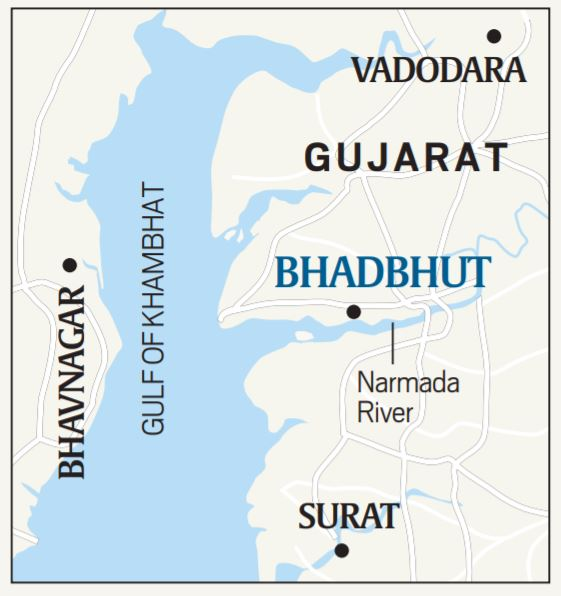Governance
Bhadbhut Project
- 18 Aug 2020
- 3 min read
Why in News
Recently, the Gujarat government has awarded the contract for the Bhadbhut project in Bharuch.
- The Inland Waterway Authority of India has given clearance for this project.
- The project has faced protests from local fishermen because it is likely to impact fishing patterns, mainly those of hilsa (Tenualosa ilisha).
Key Points
- Features of the Project:

- It is located across the river Narmada, 5 km from Bhadbhut village and 25 km from the mouth of the river, where it flows into the Gulf of Khambhat.
- The project is part of the larger Kalpasar Project, which entails the construction of a 30-km dam across the Gulf of Khambhat between Bharuch and Bhavnagar districts.
- Kalpasar Project aims to store Gujarat’s 25% average annual surface water resources..
- This reservoir will store about 8,000 million cubic metres (MCM) of surface water and will be one of the world’s largest freshwater reservoirs in the sea.
- Purpose:
- To prevent salinity ingress.
- Salinity ingress refers to the process of saltwater invading areas which previously contained only freshwater.
- Due to the reduced flow of freshwater, saline seawater gushes into the Narmada estuary during high tide, thus increasing salinity along the banks.
- It will stop most of the excess water flowing out of the Sardar Sarovar Dam from reaching the sea and will create a sweet water lake of 600 MCM on the river, solving the freshwater problems in Bharuch.
- This will tap the excess waters of the Narmada, Mahisagar and Sabarmati rivers in the reservoir.
- To prevent salinity ingress.
- Impact:
- The barrage is expected to interfere with the migration and breeding cycle of hilsa, blocking their natural entry.
- Hilsa is a marine fish which migrates upstream and arrives in the brackish water of the Narmada estuary near Bharuch for spawning usually during the monsoon months of July and August and continues doing so till November.
- The reduced outflow of water from the dam, industrial effluents flowing into the river and salinity ingress are believed to be the major causes of the decline of hilsa.
- Part of Aliya Bet, an island in the delta of the Narmada and known for shrimp farming, is likely to get submerged.
- A portion of the forest in Aliya Bet too will get affected by the project.
- The barrage is expected to interfere with the migration and breeding cycle of hilsa, blocking their natural entry.




